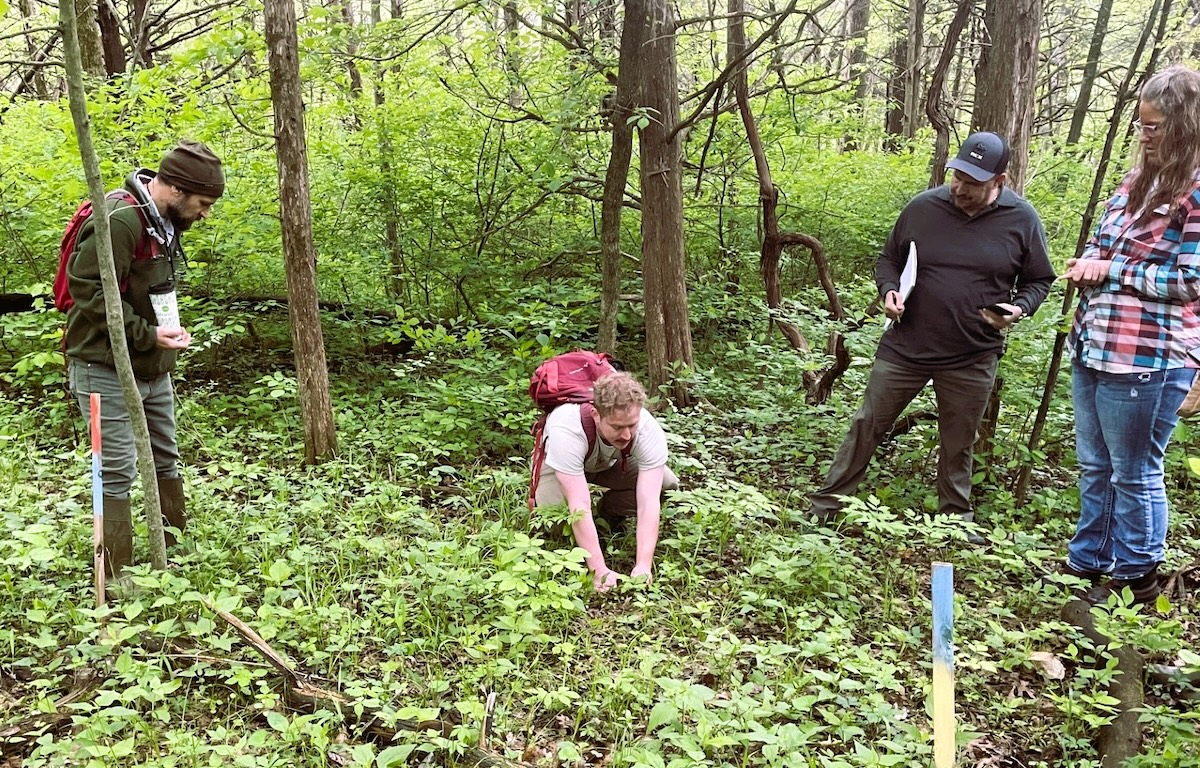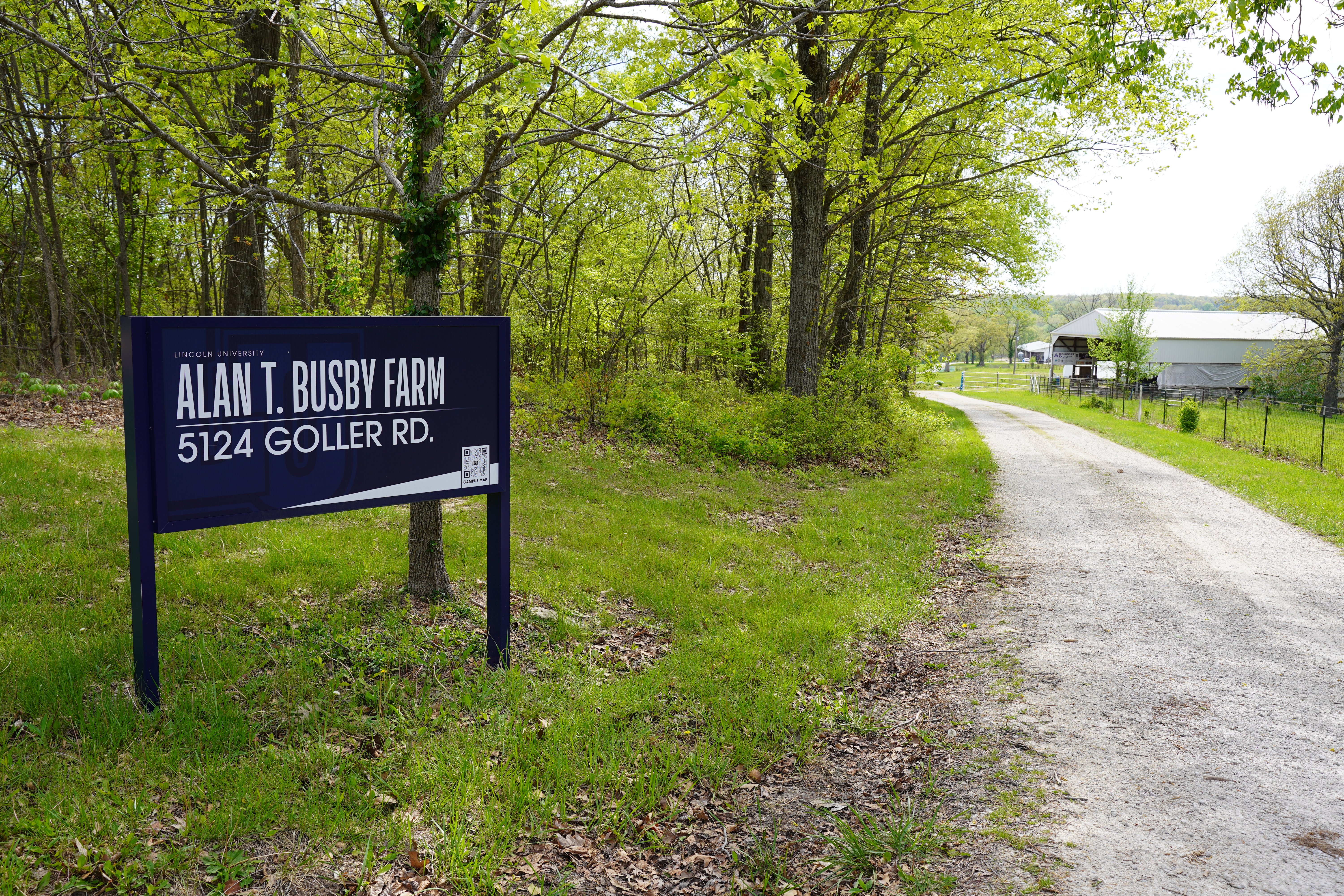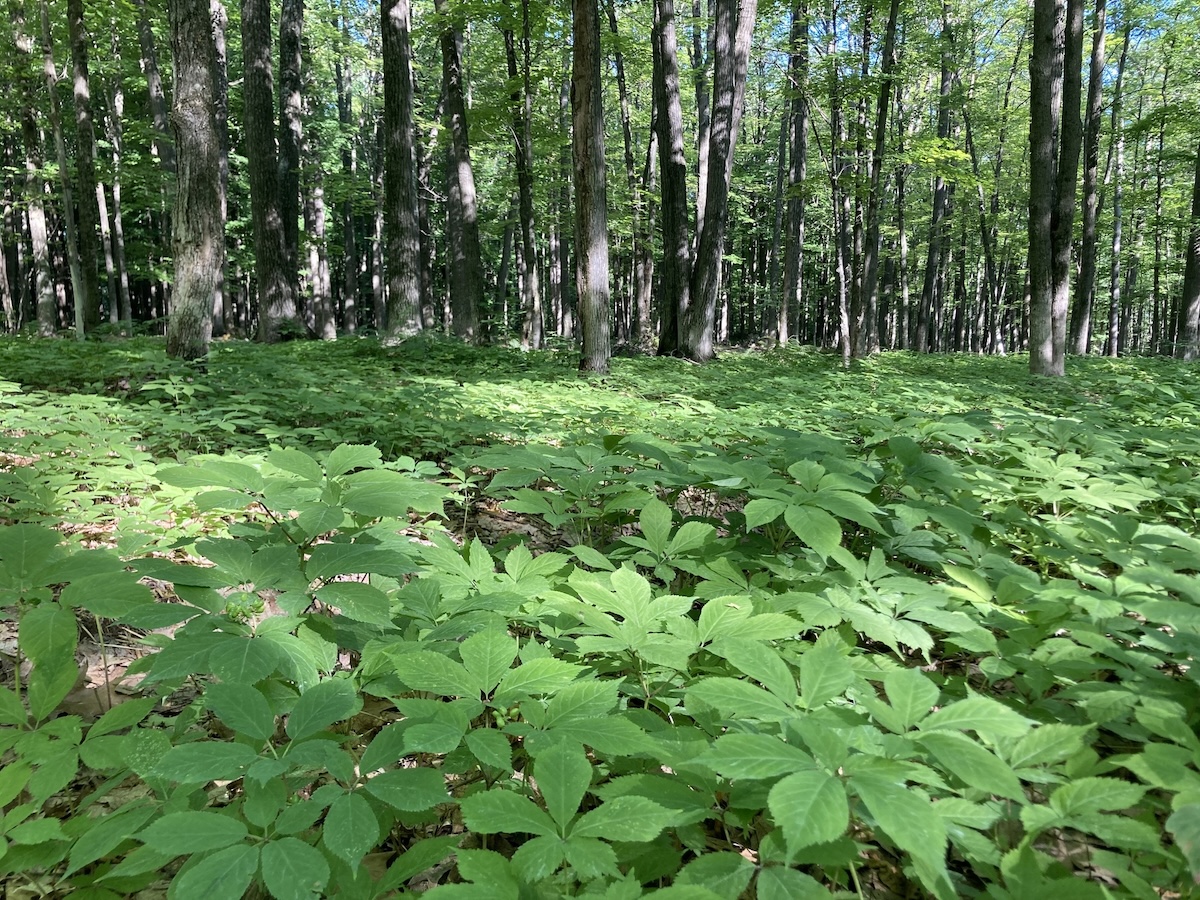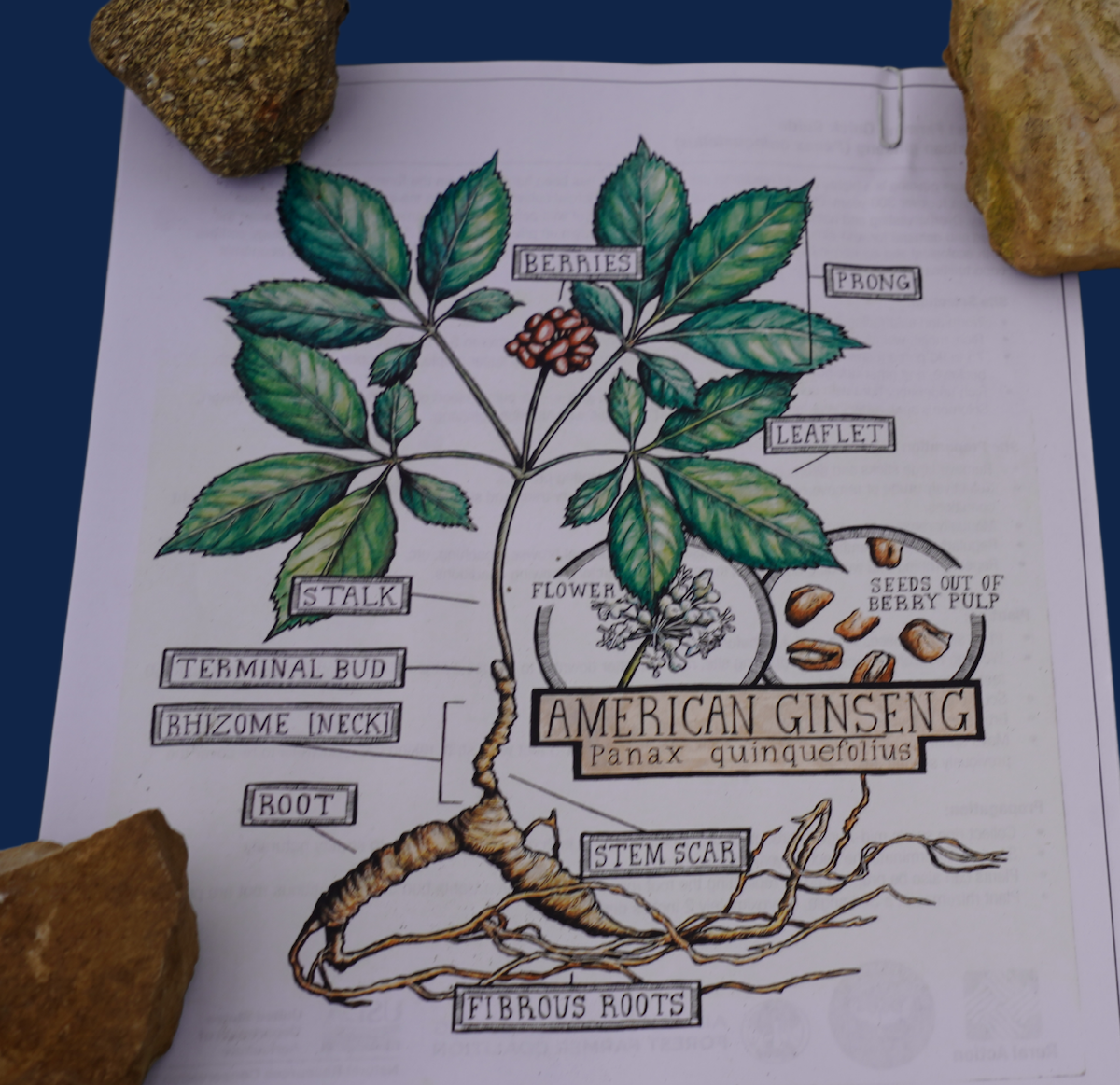Rethinking the Landscape: Lincoln University Hosts Forest Farming Workshop
Office of Communications and Marketing
Young Hall
820 Chestnut Street
Jefferson City, MO 65101
 During the forest farming workshop, attendees explore shaded planting areas and discuss site preparation techniques at LU’s Busby Farm.
During the forest farming workshop, attendees explore shaded planting areas and discuss site preparation techniques at LU’s Busby Farm.
Lincoln University of Missouri (LU) hosted a forest farming workshop at its Alan T. Busby Research Farm in Jefferson City to introduce participants to the potential of growing specialty crops in wooded areas. Ezra Houston, LU forest farming coordinator who led the event, explained how forest farming presents an alternative to conventional agriculture — offering new opportunities to utilize shaded land and enter niche markets.
 A sign marks the entrance to Lincoln University’s Alan T. Busby Research Farm in Jefferson City, the site used for the forest farming workshop.
A sign marks the entrance to Lincoln University’s Alan T. Busby Research Farm in Jefferson City, the site used for the forest farming workshop.
“Forest farming is a form of agroforestry that allows growers to cultivate high-value crops like American ginseng, tree syrups, edible plants like ramps and mushrooms in shaded woodland environments,” Houston said. “The top one is called American ginseng, and it can sell for hundreds of dollars per pound for its roots.”
Limited land, costly equipment and difficulty accessing markets continue to hold back many small-scale farmers. Forest farming offers a low-impact solution by focusing on crops that thrive under canopy cover.
“Forest farming offers a unique opportunity for small-scale producers to diversify their operations without the need for large acreage or heavy equipment,” Houston said. “This approach allows farmers to work within their existing landscapes while tapping into the growing demand for locally sourced, specialty products.”
 Ginseng growing in a shaded forest setting, showing the potential of forest farming for cultivating high-value crops in natural woodland environments.
Ginseng growing in a shaded forest setting, showing the potential of forest farming for cultivating high-value crops in natural woodland environments.
To demonstrate how forest farming works in practice, the workshop included a guided tour of research plots at LU’s Busby Farm. Raelin Kronenberg, LU research specialist, led the group through areas used for specialty crop production and forest management experiments. Participants explored how forest conditions — such as light and moisture levels — impact forest farmed crops and what factors to consider when preparing a woodland site for cultivation.
Afternoon sessions focused on practical planning and marketing of forest-farmed products. Presenters discussed how to evaluate a site, budget for materials and select appropriate species for a forest farming system. Amanda Jokerst from Forest and Meadow Herbal Shop and Clinic, an herbal business in St. Louis, joined the workshop to speak about buyer expectations and market demand for forest-grown products. Additional collaborators included members of MU Extension, who contributed their expertise on specialty crops, site development and forest ecology.
 A botanical diagram of American ginseng (Panax quinquefolius) highlights the plant’s key parts, including its berries, leaflets, root structure, and seed development.
A botanical diagram of American ginseng (Panax quinquefolius) highlights the plant’s key parts, including its berries, leaflets, root structure, and seed development.
The event was part of a broader effort supported by a USDA Capacity Building Grant and housed within LU’s College of Agriculture, Environmental and Human Sciences Cooperative Research. The initiative aims to expand agroforestry education and outreach across Missouri. As part of this work, LU hosts monthly forest farming office hours via Zoom, where farmers and landowners can ask questions and learn from ongoing research. Houston also plans to host another workshop or field day later this summer to continue building awareness and engagement.
For more information about forest farming resources or to join an upcoming Zoom session, contact Ezra Houston at HoustonE@LincolnU.edu or visit https://www.mwffc.org.
